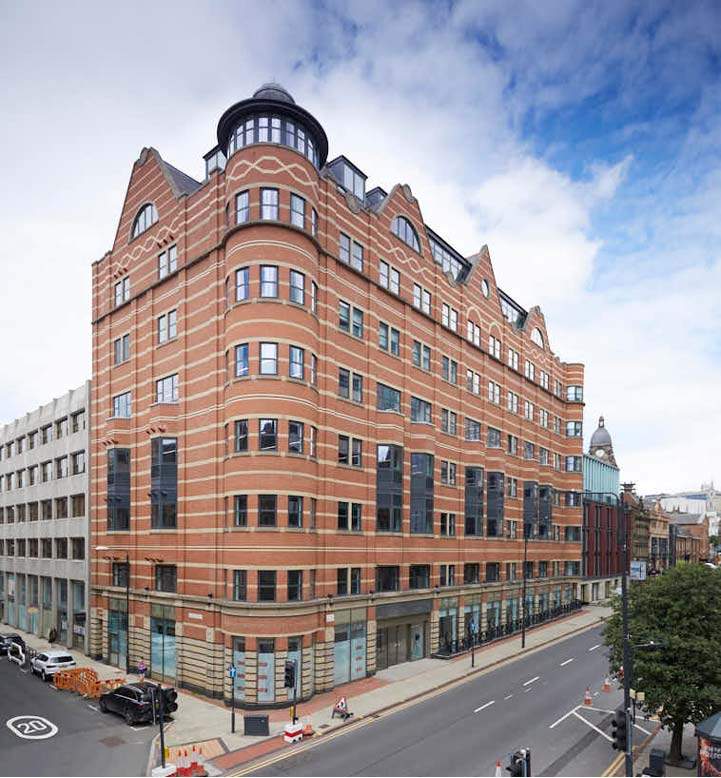There is a heightened awareness of the growth of new sectors post-lockdown. An even heavier reliance on our digital tech sector will certainly see new companies coming forward.
The future of Leeds
The impact on demand for office space has been a key topic since the onset of Covid-19, with much written on both sides of the debate, with the changing nature of the office an important factor that will impact demand.
In a post-Covid-19 world, there is a heightened awareness of the growth of new sectors. An even heavier reliance on our digital tech sector will certainly see new companies coming forward.
Tracking the flow of investment since the beginning of 2018, around £300bn has been invested in emergent sectors, with the resultant potential to drive office and workplace demand.
Some businesses, for example, within the life sciences sector, will remain more resilient and grow faster, potentially leading to higher demand for office space that meets their unique requirements.
Leeds was recently named the best place to start a business in the UK. Following Channel 4 and Sky making the move to Leeds, more creative and digital jobs have followed suit, which is further opening up more investment opportunities and bringing more people to the city.
Highly successful tech hubs, such as Bruntwood’s Platform building and 1 East Parade (pictured below) continue to attract and support the expansion of these digital technology businesses.
Many of these companies begin their life as start-ups, with many starting in serviced office/coworking space. Although this kind of space, with its tightly packed in tenants, have been hit hard by the immediate effects of coronavirus, in the longer term, this model, which uses space more flexibly and efficiently, could become more important.
Leeds has also managed to successfully capture the scaleup market and according to Beauhurst’s most recent ScaleUp Index, the Leeds City Region has 209 visible scale-ups. Continued growth by companies such as Australian fintech Sandstone Technology, plus the arrival of Estonian fintech scale-up Fitek and US sports analytics business Hudl, confirm Leeds as now having the highest concentration of scale-ups outside London.
It just goes to show that Leeds is a place where innovative new businesses can thrive, and as more start-ups make the transition to scale-up, it will cement the city as a place for tech hubs to grow and flourish. Leeds United are also now back in the Premier League, which can only mean more positive sentiment and 'feel good' for the city.
Occupational overview

1 East Parade, Leeds
During the first half of 2020 take-up in Leeds city centre reached 160,146 sq ft, 63% below the same point in 2019 and 40% below the 10-year first-half average.
50% of take-up was for Grade A space totalling 79,760 sq ft. However, there are a number of lettings set to sign in Q3, which is encouraging for the city as it comes out of its period of lockdown. These lettings include Majestic, who have now signed Knights Solicitors on a further 20,000 ft sq and the NHS, who are taking 20,000 ft sq at the refurbished 1 Park Lane, with a further 10,000 sq ft under offer at 1 City Square.
Grade A supply has rapidly decreased in Leeds throughout recent years and is currently 51% below the five-year average. There is currently only 0.4 years' worth of Grade A supply in the market.
Encouragingly, Leeds has experienced rental growth of 6.7% in the first half of the year with prime rents now reaching £32 per sq ft.
Investment overview
Through the first half of 2020, Leeds saw total commercial investment volumes of £137 million, a 57% decrease on H1 2019 and a 37% decrease on the five-year H1 average.
Turning to offices, a number of deals that were delayed as a result of Brexit completed in the first quarter of 2020 with £69m of office investments in Q1. At the half-year there was a total of circa £89m of offices transacted with transactional activity seriously impacted in Q2 as a result of lockdown. Despite this, Leeds is in line with the long-term average investment volume of circa £180m per annum.
Despite lockdown, demand for office investments in Leeds remains strong, mainly from overseas investors who have been the most active buyer accounting for over 50% of office investment during the first half of the year.
There is still a lack of motivated sellers which is likely to underpin our view of prime yields at 5% as we move through the second half of the year. However, it will take a few benchmark transactions to establish the impact on pricing of the more secondary end of the market as a result of the Covid crisis.
Collaboration and collisions
The world has changed dramatically during recent months, and unsurprisingly, this has affected our views on the workplace.
Savills FiT survey, which looks at the needs and wants of office-based workers before and after the Covid-19 lock-down found that 89% of respondents believe the office will remain a necessity. So, why is the office such an important factor for employees? One of the key messages was the important role the office plays in providing a sense of community and belonging. Human interaction and social contact were the things most missed by employees.
‘Accidental’ collisions in the workplace play a key role in boosting collaboration and encouraging innovation within the workplace. Effective communication and collaboration within a business were 50% more likely to have lower employee turnover.
Businesses with effective communication and collaboration are 50% more likely to have lower employee turnover
Savills Research
However, there is a shift towards a new types of working within the office, providing a flexible office environment that suits every type of employee. People have different needs for projects and tasks depending on the time of day, their personality and whether they need to collaborate.
The future success of the workplace is providing an adaptable multi-disciplinary environment for a dynamic and forward thinking workforce. Although we all like to put those ‘light-bulb moments’ and meetings of minds down to serendipity, many forward-thinking companies are now working towards creating more ‘intentional’ opportunities for collisions by rethinking their office design.

Health tech – the hero sector for Leeds
New research launched this month by Leeds City Region Enterprise Partnership (the LEP) reveals that Yorkshire has seen a higher rate of growth in the digital sector over the past three years than anywhere else in the country.
As the region’s reputation as a digital hub grows, more and more tech companies are choosing to put roots down in Leeds. That means more jobs, more innovation and more opportunities for collaboration.
The analysis showcases Yorkshire’s huge 48% increase in digital tech jobs over the past three years. This increase has meant that tech jobs within the region have risen from 58,000 to 86,000 and is the highest growth rate by far outpacing the rest of the UK, including London.
The rise of the digital health sector throughout the UK is important, with the growth in capital raised in the past couple of years extremely significant. New technology, particularly the growth of AI, simulation modelling and bioinformatics, will see the emergence of companies that are currently unknown widely. These companies will need office space.
Leeds City Region offers the largest concentration of medical device companies in the UK
Savills Research
As a region, Yorkshire has become one of the very best for businesses looking to expand into the healthcare sector. From the smallest three-person operations to the largest employer in Europe, they all want a slice of what the region has to offer.
Going forward, healthcare and medical technologies will be key growth sectors in Leeds, including telemedicine, which will be fundamental to how healthcare is delivered.
Leeds has four out of five NHS national offices based in Leeds, including NHS England, and some of the world’s largest healthcare data platforms – including NHS Spine, and NHS database. The NHS is also taking 20,000 Sq ft at the refurbished 1 Park Lane and 10,000 Sq ft at 1 City Square.
The region has an exceptional talent pool, with over 196,000 people employed in health and science jobs, while the region’s nine universities produce over 15,000 STEM graduates each year.
It is home to six world-leading life science clusters of academic excellence and commercial innovation, as well as having the largest concentration of medical device companies in the UK, as well as a cluster of over 200 different businesses, and accounting for a fifth of all UK digital health technology jobs.
